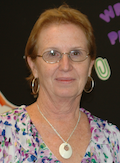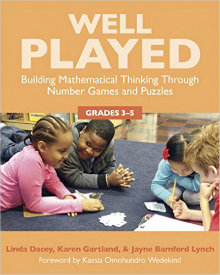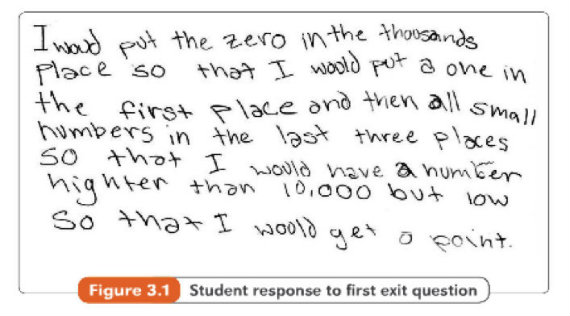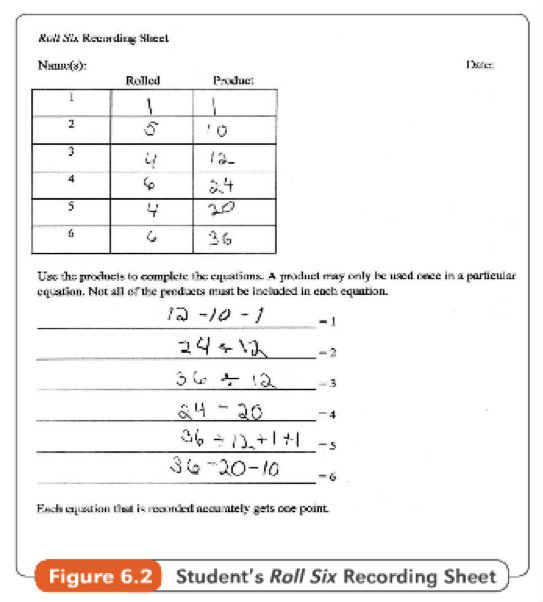Well Played: Building Mathematical Thinking
Well Played: Building Mathematical Thinking through Number Games and Puzzles (Grades 3—5)
By Linda Dacey, Karen Gartland and Jayne Bamford Lynch
(Stenhouse, 2015 – Learn more)

When I started to read Well Played: Building Mathematical Thinking through Number Games and Puzzles (Grades 3—5), I thought, “boring”! It’s probably just a book of “old games” but with a new name. Rebranding!
Was I wrong!
“Games?” you might ask. “I don’t need another book of games. How many different games can I make copies of or teach my students?” To be truthful, I hated playing games in school. Hated playing because I did not want to lose. When I played a game, my competitive side went into total action. Nothing or no one would steer me away from my goal of winning.

In the past, I used games in centers to reinforce what my fourth graders were learning or to differentiate the work we were doing in class. I even was ready to do “Game Day Friday” every week so my students would have something to look forward to (not that my teaching was boring!). Back then my students weren’t strangers to using games in the classroom to further their learning.
When I used games in the classroom earlier, I may have reviewed the rules or directions with students, but I truthfully don’t think I took enough time to explain the “what’s and why’s” of playing games in the classroom. As I continued to read Well Played by Dacey, Gartland and Lynch, my thoughts and methodology changed, hooked by every game, story, assessment, and example. It felt better to know that I wasn’t alone when I used games in the classroom.
Games still require student accountability
A fifth grade teacher in the book shared that in her class, a great deal of the “game time” often was spent by the students arguing “who did what” or concentrating on the competition rather than on the real purpose of applying what they had learned and extending their learning. Sound familiar? It was to me. I was reminded that I needed to hold my students accountable for their learning, even when they are “just” playing games.
The co-authors have created a classroom resource which is invaluable. It is more than a book of lesson plans and games, as math coach Kassia Omohundro Wedekind points out in the foreword:
This is a book full of thoughtful and well-chosen games and puzzles, but it is also a book that offers a lens into how we might include this kind of play in our own classrooms in ways that are deeply meaningful and engaging for our students.” (p. vii).
Nothing boring here!
This valuable resource guides the teacher through “setting expectations and responsibilities, assessing learning, setting goals, fostering productive discussion, meeting individual differences, organizing for success and working with families.” Mathematical areas covered are Base Ten Numeration, Addition and Subtraction, Multiplication and Division, Mixed Operations, and Fractions.
Each of the 25 classroom-tested games and puzzles follows a pattern that acquaints the teacher with:
- Why This Game or Puzzle? (explanation of the purpose and need of the activity)
- Objective, materials needed, directions
- How it looks in the classroom (classroom vignettes of the game/puzzle being implemented)
- Tips from the classroom (great resource to circumvent any possible problems)
- What to look for (great for knowing what to look for when assessing students )
- Variations (differentiation ideas)
- Extension activities
- Exit cards (with sample student responses)

At the same time, the authors address the use of online games and resources. They take into account student responsibility of using online games, and the process of “gaming” in the classroom takes on a new look as students learn how to play math games electively and with purpose.
We know that sometimes students choose online games that have the most action and noise instead of playing games that give them the opportunity to best apply what they are learning. You might even notice that the same games are being played each time. In Well Played, there’s a section at the end of each chapter that helps eliminate the stress of finding additional teacher-tested, student friendly websites such as Factor Dazzle and Break Apart that reinforce the skill being addressed.
Math Workshop is what it’s all about and this book is a fantastic resource to make your workshop sing.. Each of the math games challenges students to problem-solve and make mathematical decisions, while having fun and building community. Most of the games support the students through different levels of instruction and operation as well.
An excellent book for the early middle grades
Well Played: Building Mathematical Thinking through Number Games and Puzzles (Grades 3—5) is a book that math teachers will definitely want to enhance their math programs. Not only is it well written, easily adaptable to grades three through five, and full of resources, it is a book that will help relieve math anxiety and encourage your students to discover practical, real-life ways to apply math skills.
I love each part of this book: classroom vignettes that give me a glimpse into another teacher’s classroom, lesson plans, research based instruction, student examples, games (of course), and large appendix full of backline masters for the games, complete with directions. I think it will become a favorite math teaching book of yours, too.
Linda Biondi is a fourth grade teacher at Pond Road Middle School in Robbinsville, NJ, and a long-time Morning Meeting practitioner. She’s also the recipient of several educational grants, a Teacher Consultant with the National Writing Project and a participant on the NJ Department of Education Teacher Advisory Panel. Linda participates in ECET2 Celebrate Teaching which has posted an interview with her.



































